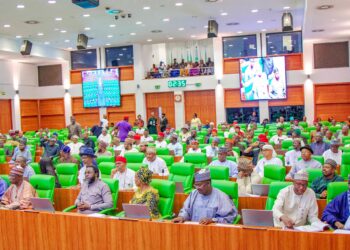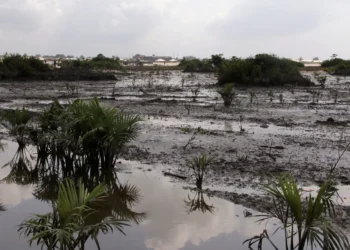The tussle over where the legal battle between Nigerians and Royal Dutch Shell Plc continues to rear its head as thousands of Nigerians have requested the British courts to give them the permission to sue Shell in London for compensation over environmental damage caused by oil spillages in the Niger Delta region.
Lawyers who are representing residents of the oil-rich Niger Delta believe that last year’s landmark UK Supreme Court Judgement against a London-based miner should set a precedent. On the other hand, Shell, had blocked the suit on two different occasions, asking that the case should go on in Nigeria.
The Nigerians suffered a setback in the case in 2017, when a high court in London ruled that Royal Dutch Shell cannot be sued in London over the oil spills as against the attempts to hold the British multinational oil firm liable in UK for the actions of their subsidiaries abroad.
READ ALSO: Oil exploration breakthrough in Gongola opens up new frontiers
The 40,000 villagers from the Bille and Ogale communities in the oil-producing Niger Delta state, who were affected by pollution and sought to take action against Shell in London rather than its Nigerian subsidiary. The decades of oil spills have destroyed the livelihoods of these fishing and farming communities. The villagers argued that the Nigerian courts were unfit to hear their case as they may not get justice.
The UK judge in his ruling said that there is no connection between this jurisdiction and the claims brought by Nigerians for breaches or acts that were done in Nigeria by a Nigerian company.
READ MORE: Nigeria set to resume evacuation of Nigerians in diaspora
While the two Niger Delta communities have been badly affected by the oil spills, a spokesperson of Shell Petroleum Development Company in Nigeria, said that most of the oil spill are caused by oil theft, pipeline sabotage, and illegal refining.
However, Amnesty International in 2018 questioned the claims by Shell with respect to the cause of the oil spills as they believed that they likely understated the number of spills attributable to operational faults.
In an earlier hearing, the UK judge had said that he had not seen any evidence the Nigerian Judiciary was not taking concrete and effective steps to improve the speed at which the cases are being handled.
But the legal representative to the Nigerian communities, Leigh Day, said that there is no prospect of justice in Nigeria as impoverished Nigerians have minimal chance of success against these oil companies with deep pockets in the overburdened local courts.
READ MORE: Chevron considers divesting from Nigeria, to focus on U.S Shale Oil
Although two English courts had ruled that the two Niger Delta communities failed to show that Royal Dutch Shell had sufficient control over SPDC, the supreme court’s subsequent dismissal of Vedanta, a London-based miner’s bid to stop a trial in the UK, has given new hope to those Niger Delta communities.
However, the cases might be different as the lower courts had found Vedanta to be much more involved in its subsidiary’s operations than Shell’s parent company.
In a related development, an earlier report had disclosed that the clean-up of oil spills in the Ogoniland area in the Niger Delta region has witnessed lack of progress. An advocacy group including Amnesty International, had said that the progress has been poor and the little work that had been done is sub-standard




















